
Find Help
More Items From Ergsy search
-

Understanding Seasonal Flu: Prevention and Treatment
Relevance: 100%
-

Is flu season going to be bad in 2026?
Relevance: 74%
-

Will climate change affect the 2026 flu season?
Relevance: 70%
-
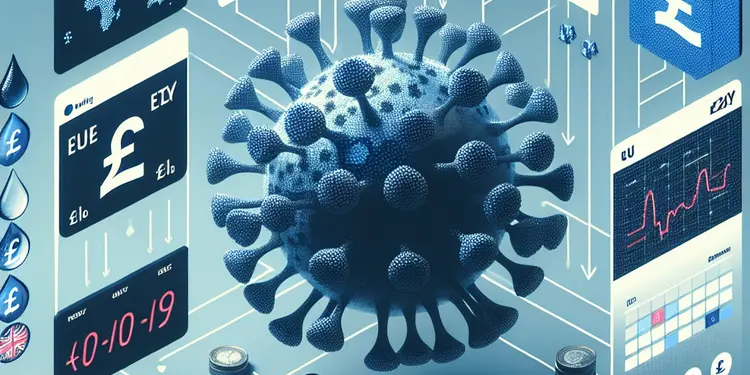
When does the H3N2 flu season typically occur?
Relevance: 69%
-

What factors determine if the flu season will be bad in 2026?
Relevance: 66%
-

Can Super Flu be prevented by vaccines?
Relevance: 64%
-
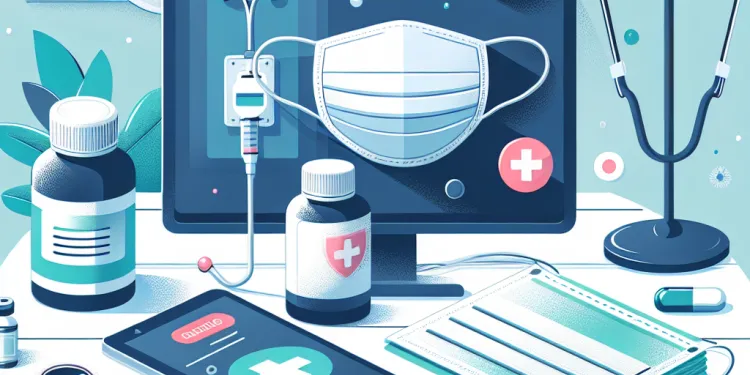
Latest Advice on Managing Respiratory Illnesses During Flu Season
Relevance: 64%
-

Are certain populations more at risk during the 2026 flu season?
Relevance: 63%
-

Why does H3N2 often lead to more severe flu seasons?
Relevance: 62%
-

What treatments are available for Super Flu?
Relevance: 55%
-

What is the H3N2 flu strain?
Relevance: 53%
-

Flu can be fatal
Relevance: 53%
-

Can lifestyle changes help prevent Super Flu?
Relevance: 52%
-

Is the winter flu jab effective against all flu strains?
Relevance: 50%
-
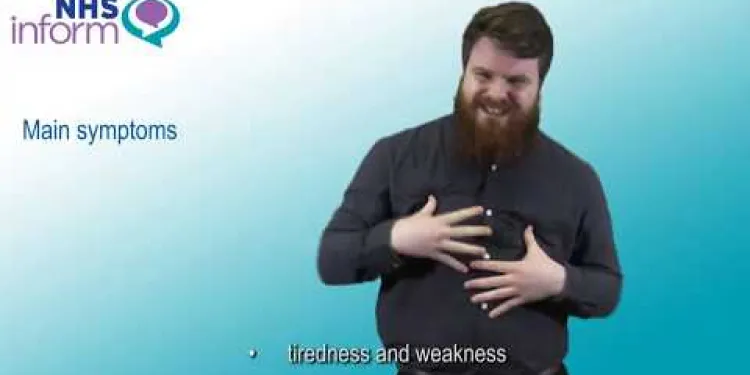
Symptoms of flu (influenza)
Relevance: 50%
-

Is Super Flu a new strain of virus?
Relevance: 49%
-
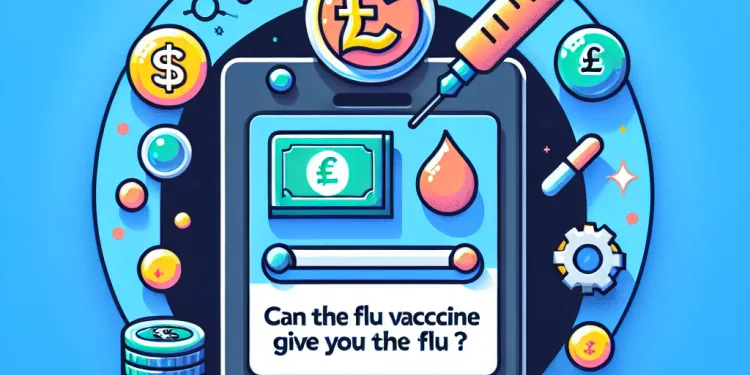
Can the flu vaccine give me the flu?
Relevance: 48%
-

When is the best time to get the flu jab?
Relevance: 48%
-

What is the winter flu jab?
Relevance: 48%
-
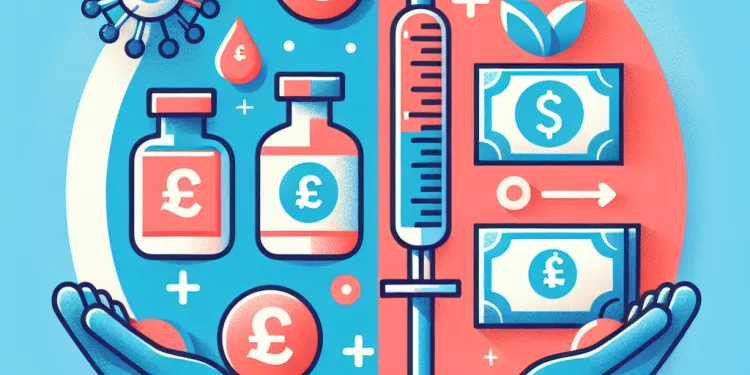
How effective is the flu vaccine?
Relevance: 47%
-

Who should get the flu vaccine in the UK?
Relevance: 47%
-

What role do public health measures play in controlling the flu season?
Relevance: 47%
-

Can we predict the severity of the 2026 flu season accurately?
Relevance: 47%
-

When is the best time to get the flu vaccine?
Relevance: 46%
-

How long does protection from the flu jab last?
Relevance: 46%
-

Is H3N2 more dangerous than other flu strains?
Relevance: 46%
-

Can pregnant women get the flu vaccine?
Relevance: 46%
-

Can Super Flu cause a pandemic?
Relevance: 46%
-

When is the best time to get the winter flu jab?
Relevance: 45%
-

How long does it take for the flu jab to become effective?
Relevance: 45%
-

How is Super Flu diagnosed?
Relevance: 45%
-

How does the winter flu jab work?
Relevance: 45%
-
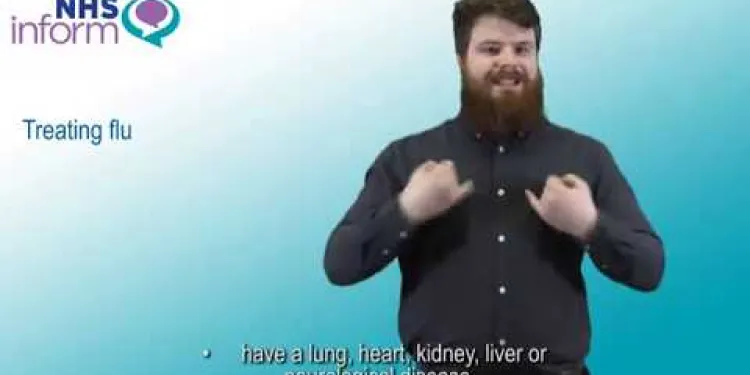
Treating flu (influenza)
Relevance: 44%
-

Can the flu vaccine give you the flu?
Relevance: 44%
-

What causes Super Flu?
Relevance: 44%
-

How important is it to get a flu vaccine in 2026?
Relevance: 44%
-

What are the symptoms of Super Flu?
Relevance: 44%
-

Can I still get the flu if I have been vaccinated?
Relevance: 44%
-
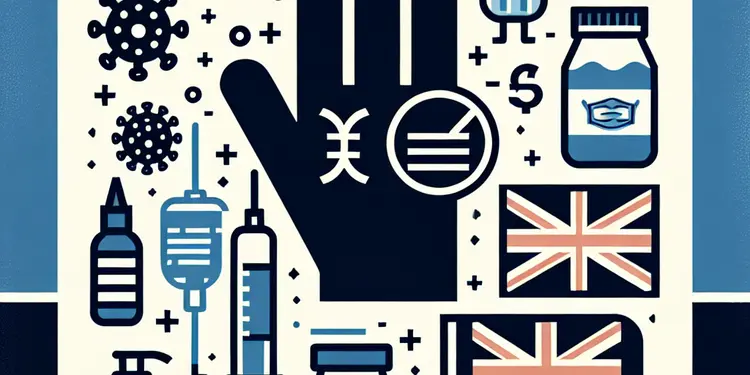
What are some preventive measures against H3N2?
Relevance: 44%
-

What precautions can be taken to avoid Super Flu?
Relevance: 44%
Understanding Seasonal Flu: Prevention and Treatment
What is Seasonal Flu?
Seasonal influenza, commonly referred to as the flu, is a contagious respiratory illness caused by influenza viruses. It usually occurs during the colder months, typically peaking between December and March in the United Kingdom. The flu can lead to mild to severe illness and even death, particularly for vulnerable populations such as the elderly, young children, and those with underlying health conditions.
Symptoms of Seasonal Flu
Common symptoms of the flu include fever, chills, muscle aches, cough, congestion, runny nose, headaches, and fatigue. Unlike the common cold, the flu comes on suddenly and can be more debilitating. In some cases, the flu may lead to complications like pneumonia, bronchitis, sinus infections, and worsening of chronic medical conditions.
Prevention Strategies
Preventing the flu primarily involves getting the annual flu vaccine, which is updated yearly to protect against the most common strains. Other prevention methods include practicing good hygiene, such as frequent hand washing with soap and water, avoiding close contact with sick individuals, and covering your mouth and nose with a tissue or your elbow when coughing or sneezing. It's also advisable to maintain a healthy lifestyle with adequate sleep, a balanced diet, and regular exercise to boost your immune system.
Treatment Options
If you do contract the flu, antiviral medications can be beneficial if taken within the first 48 hours of symptom onset. These medications can reduce the severity and duration of symptoms. Over-the-counter medications may also help alleviate specific symptoms such as fever, aches, and congestion. Rest, hydration, and eating nutritious foods will support your body in fighting the virus. If symptoms worsen or you belong to a high-risk group, it is essential to consult a healthcare provider promptly.
Conclusion
Understanding and mitigating the risks associated with seasonal flu is crucial for maintaining public health, especially during peak flu months in the UK. Vaccination, good hygiene practices, and timely treatment can significantly reduce the impact of the flu on individuals and the community. Stay informed, stay protected, and take appropriate measures to ensure the flu season passes without menace.
Understanding the Flu: How to Prevent and Treat It
What is the Flu?
The flu is an illness that makes your breathing system feel sick. It is caused by germs called viruses. The flu happens most when it is cold, usually from December to March in the UK. The flu can make people feel a little unwell or very sick. Some people like older adults, small children, and those who are already sick, can become very unwell.
What are the Signs of the Flu?
When you have the flu, you might feel hot with a fever, get chills, have sore muscles, cough, get a stuffy or runny nose, headaches, and feel very tired. The flu is not like a cold. The flu happens fast and makes you feel worse. Sometimes, the flu can cause other problems like lung infections or make other health problems worse.
How to Stop the Flu
To stop the flu, get the flu shot every year. The flu shot helps protect you from getting sick. You should also wash your hands a lot with soap and water. Stay away from people who are sick, and cover your mouth and nose when you cough or sneeze. It's good to keep your body strong by getting enough sleep, eating healthy foods, and exercising.
What to Do if You Get the Flu
If you get the flu, there are medicines that can help if you take them quickly, within two days. These medicines can make the flu less bad and help you feel better faster. You can also take medicine from the store to help with fever, pains, and a stuffy nose. Make sure you rest, drink lots of water, and eat healthy foods. If you feel worse or are at high risk, see a doctor.
Conclusion
Knowing about the flu and how to stop it is important, especially when it's cold. Getting a flu shot, keeping clean, and taking medicine can help you and others stay healthy. Learn what you can do to protect yourself and others during flu season.
Frequently Asked Questions
What is seasonal flu?
Seasonal flu, also known as influenza, is a contagious respiratory illness caused by influenza viruses. It infects the nose, throat, and sometimes the lungs.
How does the flu spread?
The flu spreads mainly by droplets made when people with flu cough, sneeze, or talk. It can also spread by touching a surface or object that has flu virus on it and then touching your mouth or nose.
What are the common symptoms of the flu?
Common flu symptoms include fever, chills, muscle aches, cough, congestion, runny nose, headaches, and fatigue. Some people may also experience vomiting and diarrhea, though this is more common in children.
How can I prevent the flu?
The best way to prevent the flu is by getting vaccinated each year. Other preventive measures include practicing good hygiene such as regular hand washing, using tissues when coughing or sneezing, and avoiding close contact with sick individuals.
When should I get the flu vaccine?
It's recommended to get the flu vaccine in the autumn, before the start of the flu season, which typically begins in October.
Who should get the flu vaccine?
Everyone aged six months and older should get the flu vaccine, especially those at higher risk of complications, including young children, the elderly, pregnant women, and individuals with certain chronic health conditions.
What treatments are available for the flu?
Treatment primarily involves rest, fluids, and over-the-counter medications for relieving symptoms. In some cases, antiviral drugs may be prescribed by a healthcare provider.
Are antibiotics effective against the flu?
No, antibiotics are not effective against the flu because it is caused by a virus, not bacteria.
Can I still get the flu after being vaccinated?
Yes, it is still possible to get the flu after being vaccinated, but the vaccine can reduce the severity and duration of symptoms and lower the risk of serious complications.
What should I do if I get the flu?
If you get the flu, stay home to avoid spreading it to others, get plenty of rest, stay hydrated, and use over-the-counter medications to alleviate symptoms. Contact your healthcare provider if you are at high risk for complications or have severe symptoms.
Can the flu cause complications?
Yes, the flu can cause complications such as pneumonia, bronchitis, sinus infections, and worsening of chronic medical conditions. It can be particularly serious for young children, the elderly, pregnant women, and individuals with certain underlying health conditions.
How can I tell if I have the flu or a common cold?
Flu symptoms are usually more severe and come on more suddenly than cold symptoms. High fever, chills, and body aches are more common with the flu. If you are unsure, consult your healthcare provider.
Is there a risk of catching the flu from the flu vaccine?
No, you cannot catch the flu from the flu vaccine. The flu shot contains inactivated virus, which is not infectious.
How long does it take to recover from the flu?
Most people recover from the flu within a week or two, though some symptoms, such as fatigue, can last longer. Severe cases may require medical attention.
Is the flu the same as COVID-19?
No, the flu and COVID-19 are caused by different viruses. However, they have some similar symptoms. It's important to get vaccinated against both to protect yourself and others.
What is seasonal flu?
Seasonal flu is a sickness that comes around every year. It can make you feel very sick. You can get a fever, cough, and sore throat. It usually happens in cold months.
To help keep from getting the flu, you can get a flu shot. Washing your hands often is also good. If you feel sick, rest and drink lots of water.
Flu, or influenza, is a sickness that spreads easily between people. It is caused by a virus. The flu affects your nose, throat, and sometimes your lungs.
How does the flu spread?
The flu is a sickness that can make you feel very sick. It spreads from one person to another. You can get the flu by:
- Being close to someone with the flu when they cough or sneeze.
- Touching things that have flu germs on them, like door handles or toys. If you touch your face after, you might get sick.
To help stay healthy, wash your hands often with soap and water. It's also good to cover your mouth when you cough or sneeze. This stops the flu from spreading.
The flu is a sickness that people can catch easily.
You get the flu from tiny drops in the air when a sick person coughs, sneezes, or talks.
You can also get the flu by touching things that have the flu virus on them. If you touch your mouth or nose after, you might get sick.
To help stay safe, wash your hands often and use hand sanitizer. Try not to touch your face. Cover your mouth with your elbow when you cough or sneeze.
What signs show you have the flu?
The flu can make you feel sick. Here are some common signs:
- Fever - You may feel very hot.
- Cough - You might cough a lot.
- Sore throat - Your throat may hurt.
- Runny or stuffy nose - Your nose might feel blocked or drippy.
- Body aches - Your body may feel sore.
- Headaches - Your head might hurt.
- Feeling very tired - You might feel sleepy and not have energy.
If you have these signs, tell someone. Rest and drink water. A doctor can help too.
When you have the flu, you might feel sick in a few different ways:
- You might get a fever. This means your body feels very hot.
- You could feel really cold even when it's not cold. This is called chills.
- Your muscles might hurt.
- You might start coughing.
- You may have trouble breathing because your nose is blocked. This is called congestion.
- Your nose might run, making it hard to stop sneezing. This is a runny nose.
- Your head might hurt, which we call headaches.
- You might feel very tired, which is called fatigue.
- Some people, especially kids, might feel like they need to throw up. This is called vomiting.
- Kiddies might also have diarrhea, where they need to go to the toilet a lot.
Tips to feel better:
- Drink lots of water and rest a lot when you have the flu.
- If you're not sure what to do, ask a grown-up or a doctor for help.
- A warm blanket or a cozy sweater can help if you're feeling cold.
How can I stop getting the flu?
The flu is a sickness. Here are ways to help you stay healthy:
- Get the flu shot. It is like a shield against the flu.
- Wash your hands often. Use soap and water to keep germs away.
- Cover your mouth with a tissue when you sneeze or cough.
- Stay away from people who are sick.
- Eat healthy food and drink lots of water.
Parents can help by talking to a doctor about getting a flu shot.
The best way to stop getting the flu is to have a flu shot every year. You can also stay healthy by washing your hands often, using a tissue when you cough or sneeze, and staying away from people who are sick.
When should I get the flu shot?
It is a good idea to get your flu shot in the autumn, before flu season starts. Flu season usually starts in October.
Who should get the flu shot?
The flu shot helps you stay healthy. Some people really need it. Here’s who should get it:
- Children over 6 months old
- Older people, like grandparents
- People who are sick a lot or have other health problems
- Pregnant people
- Doctors and nurses who help others
Ask your doctor or nurse if you should get the flu shot.
Everyone over six months old should get a flu shot. This is very important for some people, like:
- Young kids
- Older people
- Pregnant women
- People who have health problems for a long time
A flu shot can help keep you safe from getting sick. Ask a doctor or nurse if you have questions. They can help you understand what you need to do. If reading is hard, you can use a tool to read the text out loud. A friend, family member, or teacher might also help.
What can help you get better from the flu?
When you have the flu, there are things you can do to feel better:
- Rest a lot. Sleep helps your body fight the flu.
- Drink lots of water and juice. This stops you from getting too dry.
- Take medicine if you have a fever or pain. Ask an adult to help you with this.
- Stay home so you don't give the flu to other people.
If you have questions or feel very sick, ask an adult or a doctor for help.
You can also use pictures or videos to learn more about the flu.
When you are sick, you should rest and drink a lot of water. You can also take medicine from the store to help you feel better. If the doctor thinks you need more help, they might give you special medicine to fight the sickness.
Do antibiotics work for the flu?
Antibiotics are special medicines that fight germs called bacteria. The flu is caused by a different kind of germ called a virus. This means antibiotics do not help with the flu.
If you have the flu, you can:
- Get lots of rest.
- Drink plenty of water.
- Ask a doctor for medicine if needed.
No, antibiotics do not help with the flu. The flu is caused by a virus, not bacteria.
Can I get the flu after having the flu shot?
Yes, it is possible. Sometimes, people can still get the flu after having the flu shot. But the flu shot helps make the illness less serious.
Remember, washing your hands and staying away from sick people can also help keep you safe from the flu.
If you need help reading, you can ask someone you trust to read with you.
Yes, you can still get the flu even if you have had the flu shot. But the shot can help make your flu milder and shorter. It can also help stop you from getting really sick.
What to do if you get the flu?
If you get the flu, here are some simple steps to feel better:
- Rest: Make sure you get lots of sleep.
- Drink: Have lots of water and juice.
- Medicine: Ask an adult to help you get medicine for fever and aches.
- Food: Eat light meals like soup and bread.
- See a Doctor: If you feel very sick, ask an adult to take you to a doctor.
It can also help to talk to someone about how you feel. You can use simple apps or pictures to show your feelings if it's hard to say with words.
If you have the flu, stay at home. This helps stop others from getting sick. Rest a lot and drink water. You can take medicine from the store to feel better. If you feel very sick or are worried, call your doctor.
Can the flu make you more sick?
Yes, the flu can make people more sick. People can get other illnesses like lung infections, sinus infections, and can feel worse if they already have health problems. It is more serious for young kids, elderly people, pregnant women, and people who already have health problems.
To stay healthy, wash your hands often and get the flu shot. If you feel sick, tell an adult and rest. Always ask a doctor if you don’t feel well.
How do I know if I have the flu or just a cold?
Flu symptoms are strong and happen quickly. You get a high fever, shivers, and your body hurts. If you are not sure if you have a cold or the flu, ask your doctor for help.
Some tools that can help are picture cards or apps that show the difference between flu and cold symptoms. Talking to someone you trust about how you feel can also be helpful.
Can the flu shot make you sick with the flu?
The flu shot helps protect you from the flu. It cannot give you the flu. If you have questions, ask a doctor or nurse.
No, you cannot get the flu from the flu shot. The flu shot has a virus that is not active, so it cannot make you sick.
How long does it take to get better from the flu?
When you have the flu, you might feel sick for about a week. After that, you should start to feel better. Some people might need longer to get better.
Here are some tips to help you feel better:
- Rest a lot. Sleep helps your body fight the flu.
- Drink lots of water and juice. This keeps you from getting too dry.
- Eat healthy food to give your body energy.
- If you have medicine from a doctor, take it as told.
Sometimes reading can be hard if you feel sick. A friend or family member can help you with reading or understanding information.
Most people feel better from the flu in one or two weeks. But feeling tired might last a bit longer. Sometimes, if someone is very sick, they need to see a doctor.
Is the flu the same as COVID-19?
No, the flu and COVID-19 are not the same. They are two different illnesses.
The flu is caused by the flu virus. COVID-19 is caused by a virus called coronavirus.
But, both can make you feel sick. They can give you a fever, cough, and make you tired.
If you want help to understand more, you can:
- Ask someone you trust to explain it to you.
- Use pictures to help you understand.
- Watch videos made for children about these illnesses.
No, the flu and COVID-19 are not the same. They come from different viruses. But, they can make you feel sick in similar ways. It's good to get your flu shot and COVID-19 shot. This helps keep you safe and keep others safe too.
Useful Links
This website offers general information and is not a substitute for professional advice.
Always seek guidance from qualified professionals.
If you have any medical concerns or need urgent help, contact a healthcare professional or emergency services immediately.
Some of this content was generated with AI assistance. We’ve done our best to keep it accurate, helpful, and human-friendly.
- Ergsy carfully checks the information in the videos we provide here.
- Videos shown by Youtube after a video has completed, have NOT been reviewed by ERGSY.
- To view, click the arrow in centre of video.
- Most of the videos you find here will have subtitles and/or closed captions available.
- You may need to turn these on, and choose your preferred language.
- Go to the video you'd like to watch.
- If closed captions (CC) are available, settings will be visible on the bottom right of the video player.
- To turn on Captions, click settings .
- To turn off Captions, click settings again.
More Items From Ergsy search
-

Understanding Seasonal Flu: Prevention and Treatment
Relevance: 100%
-

Is flu season going to be bad in 2026?
Relevance: 74%
-

Will climate change affect the 2026 flu season?
Relevance: 70%
-

When does the H3N2 flu season typically occur?
Relevance: 69%
-

What factors determine if the flu season will be bad in 2026?
Relevance: 66%
-

Can Super Flu be prevented by vaccines?
Relevance: 64%
-

Latest Advice on Managing Respiratory Illnesses During Flu Season
Relevance: 64%
-

Are certain populations more at risk during the 2026 flu season?
Relevance: 63%
-

Why does H3N2 often lead to more severe flu seasons?
Relevance: 62%
-

What treatments are available for Super Flu?
Relevance: 55%
-

What is the H3N2 flu strain?
Relevance: 53%
-

Flu can be fatal
Relevance: 53%
-

Can lifestyle changes help prevent Super Flu?
Relevance: 52%
-

Is the winter flu jab effective against all flu strains?
Relevance: 50%
-

Symptoms of flu (influenza)
Relevance: 50%
-

Is Super Flu a new strain of virus?
Relevance: 49%
-

Can the flu vaccine give me the flu?
Relevance: 48%
-

When is the best time to get the flu jab?
Relevance: 48%
-

What is the winter flu jab?
Relevance: 48%
-

How effective is the flu vaccine?
Relevance: 47%
-

Who should get the flu vaccine in the UK?
Relevance: 47%
-

What role do public health measures play in controlling the flu season?
Relevance: 47%
-

Can we predict the severity of the 2026 flu season accurately?
Relevance: 47%
-

When is the best time to get the flu vaccine?
Relevance: 46%
-

How long does protection from the flu jab last?
Relevance: 46%
-

Is H3N2 more dangerous than other flu strains?
Relevance: 46%
-

Can pregnant women get the flu vaccine?
Relevance: 46%
-

Can Super Flu cause a pandemic?
Relevance: 46%
-

When is the best time to get the winter flu jab?
Relevance: 45%
-

How long does it take for the flu jab to become effective?
Relevance: 45%
-

How is Super Flu diagnosed?
Relevance: 45%
-

How does the winter flu jab work?
Relevance: 45%
-

Treating flu (influenza)
Relevance: 44%
-

Can the flu vaccine give you the flu?
Relevance: 44%
-

What causes Super Flu?
Relevance: 44%
-

How important is it to get a flu vaccine in 2026?
Relevance: 44%
-

What are the symptoms of Super Flu?
Relevance: 44%
-

Can I still get the flu if I have been vaccinated?
Relevance: 44%
-

What are some preventive measures against H3N2?
Relevance: 44%
-

What precautions can be taken to avoid Super Flu?
Relevance: 44%


